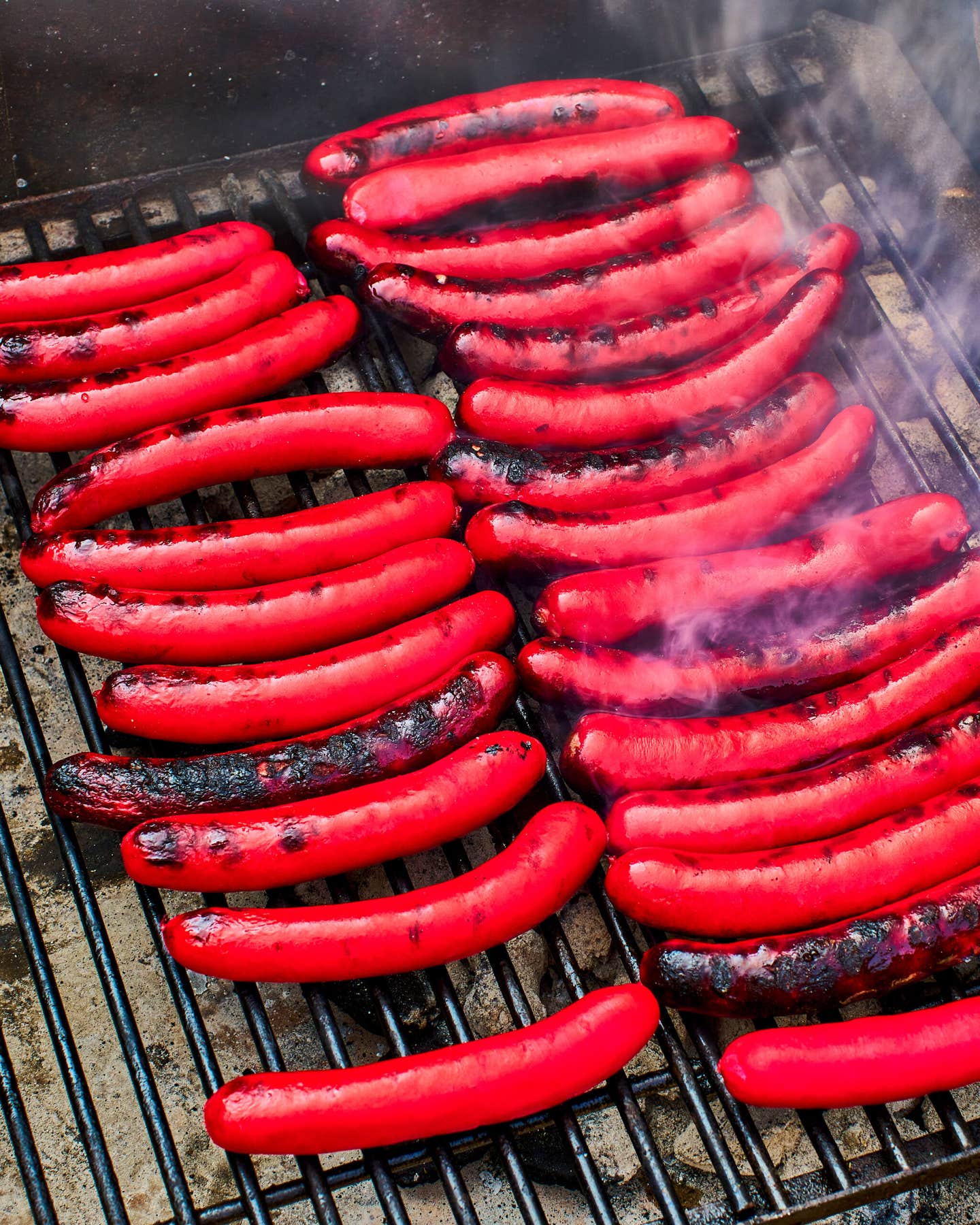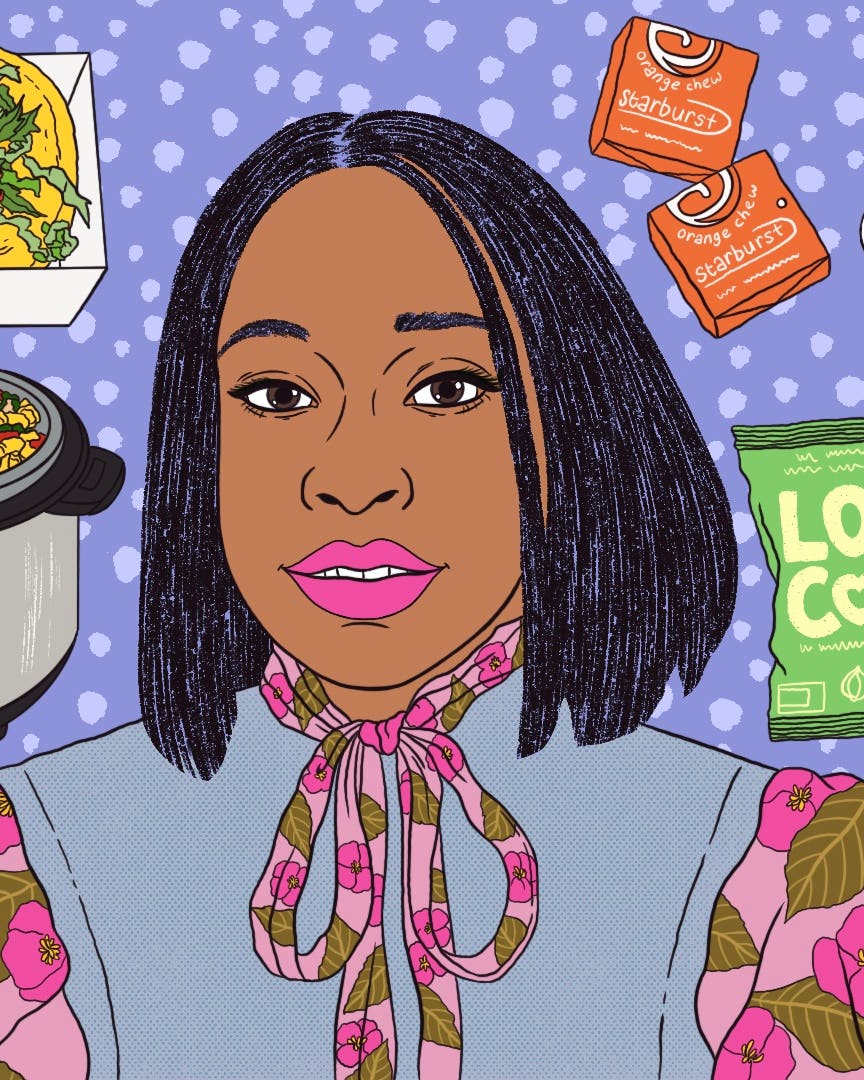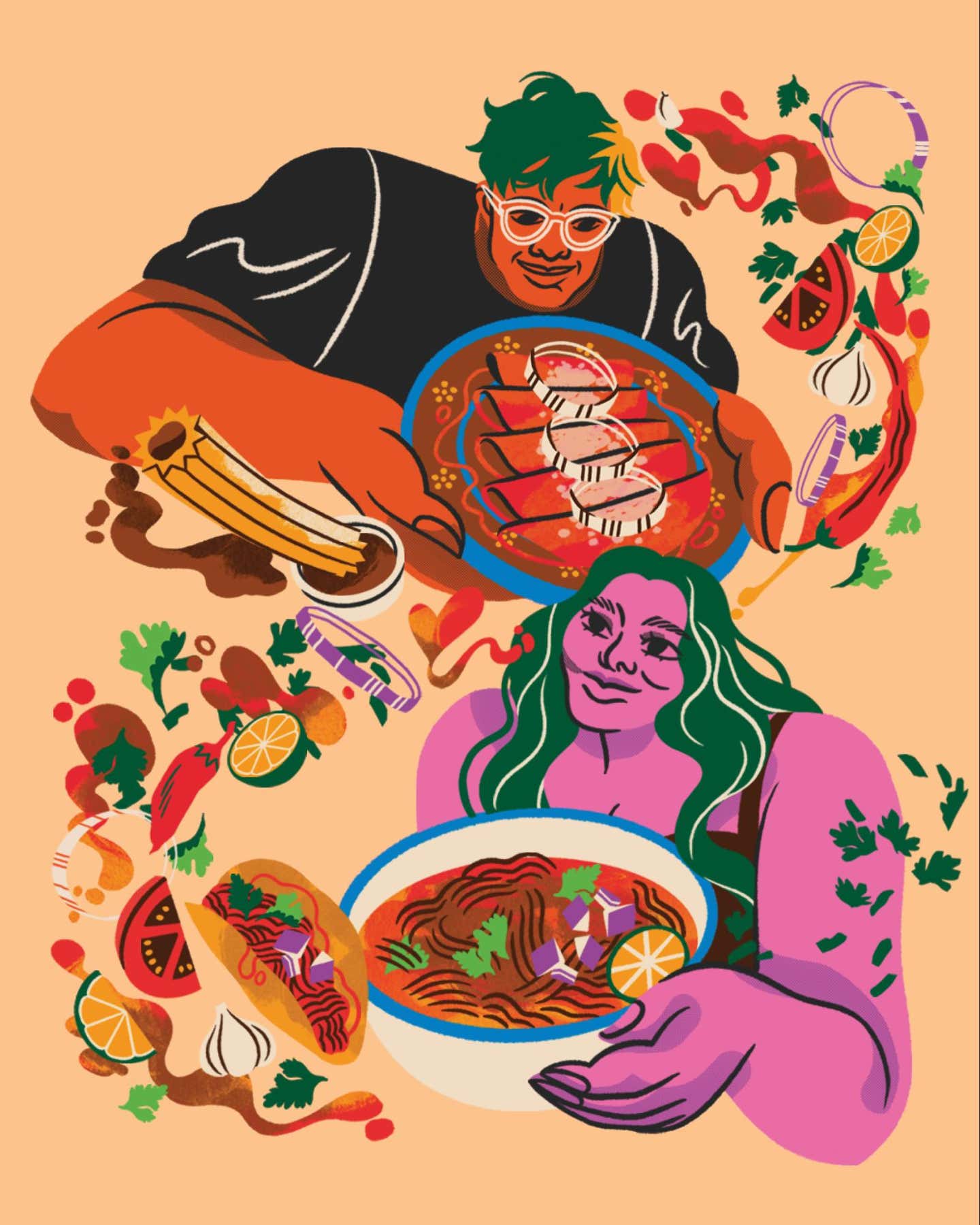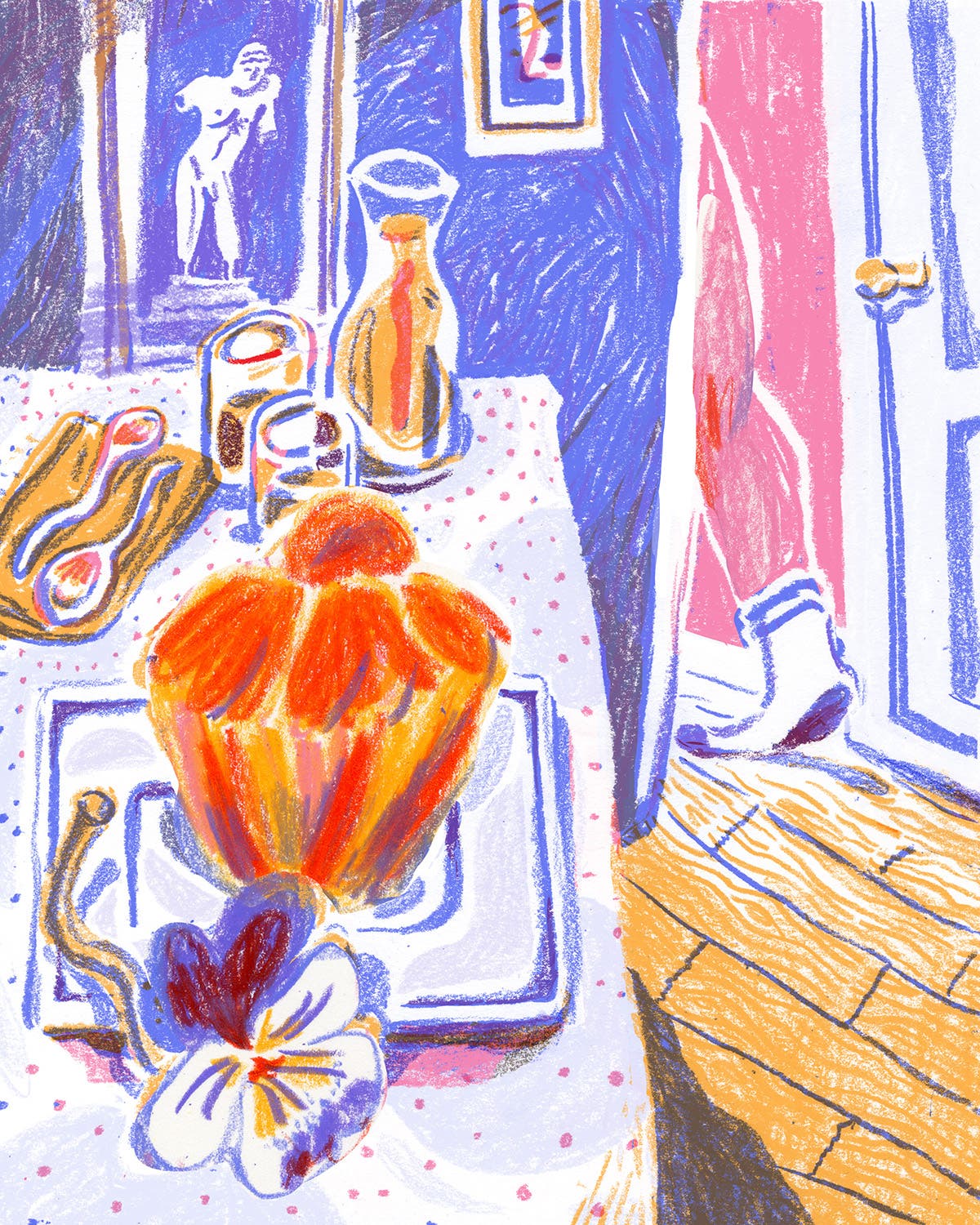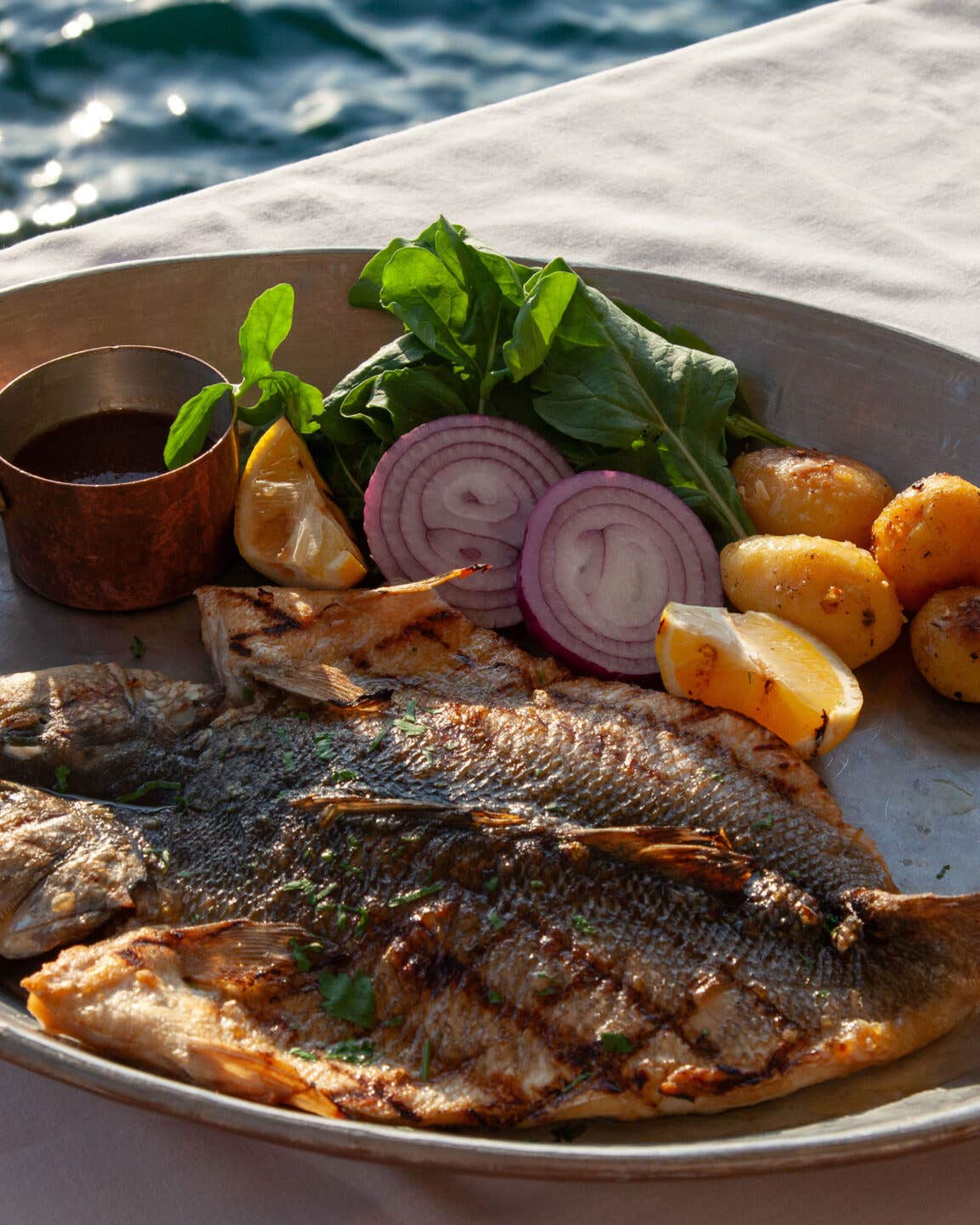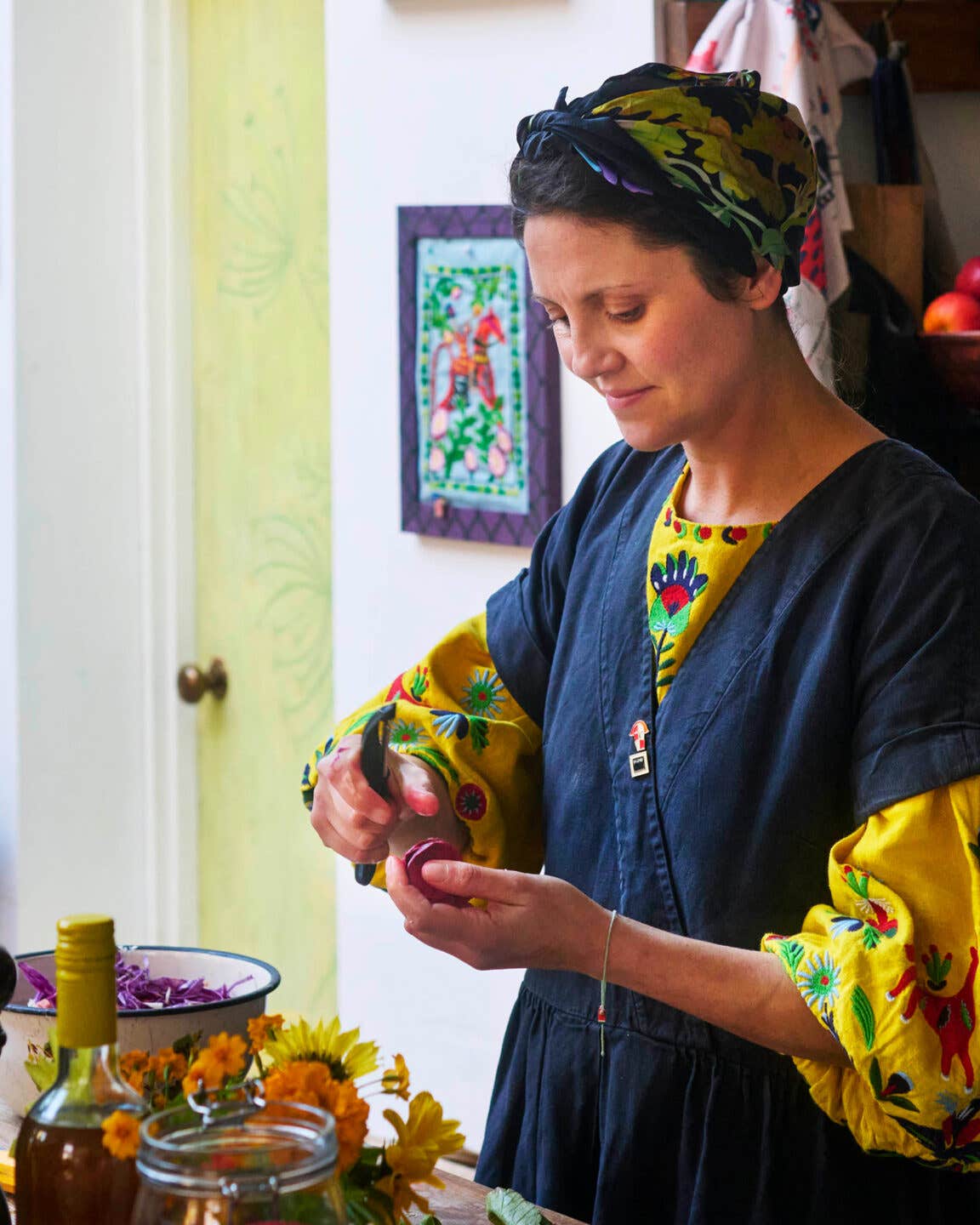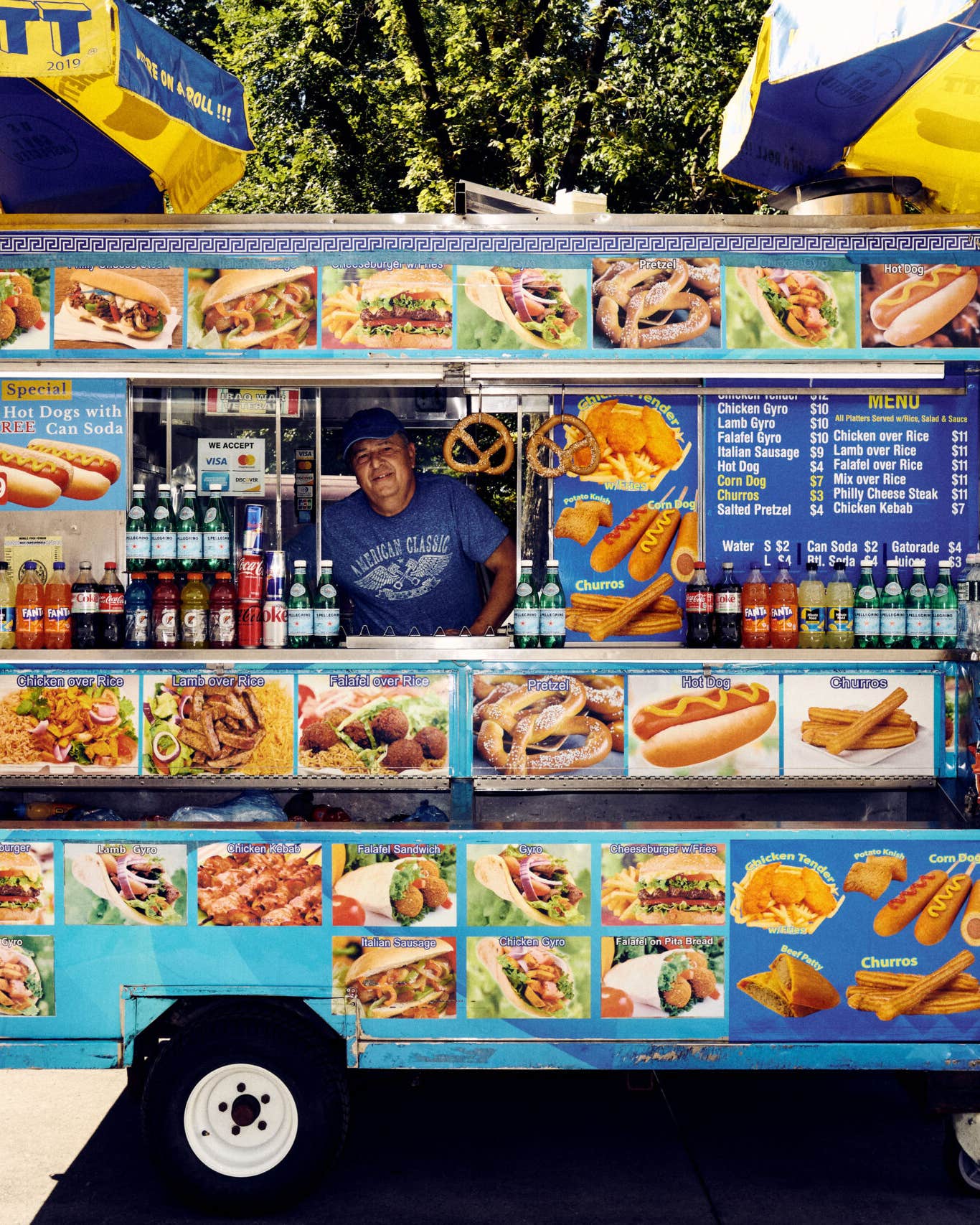The Inventor of Chinese Chicken Salad Has Died at 106
Is Madame Wu’s famous dish an example of cultural appropriation?

A California culinary legend died last month at age 106. Sylvia Cheng Wu, known lovingly as Madame Wu by her celebrity regulars including Mae West and Robert Redford, owned Madame Wu’s Garden, a Santa Monica restaurant and Hollywood hotspot that operated from 1959 to 1998. She leaves behind two sons, a gaggle of grandkids, and—her biggest claim to fame—what is likely the original recipe for Chinese Chicken Salad.
I learned of Wu and her larger-than-life personality while researching the origins of Chinese chicken salad. As a salad-averse American woman of Asian descent, I wanted to know how such an ostensibly non-Chinese dish came to become “Chinese” in the eyes of mainstream Americans. The vegetables I grew up eating were, for the most part, steamed, stir-fried, sauteed, boiled, or pickled—but rarely in salad. And then there was the question of how Chinese chicken salad wound up everywhere: fast-food drive-thrus, fancy restaurants, and even Keeping Up with the Kardashians.
While some scholars claim variations of Chinese chicken salad have existed since the turn of the 20th century, there’s consensus that the dish did not take off until it met with Madame Wu’s ingenuity—and some good old Hollywood magic.
Wu was born in Jiujiang, China, in 1915 and moved to the United States during World War II. After marrying her husband and starting a family in New York, the Wus moved to Los Angeles, where she began thinking about opening her own restaurant.
She started small, opening the 40-seat Wu’s Garden in 1959. The restaurant was an immediate hit, with stars like Frank Sinatra, Mia Farrow, and Elizabeth Taylor flocking there for Peking duck, bird’s nest soup, and—perhaps most importantly—to be fawned over by the charming owner.
One of Wu’s celebrity regulars was Cary Grant. One night, in the early days of the restaurant, Grant pulled Wu aside and told her about a distinctive chicken salad he’d tried at another (unnamed) restaurant. Grant was neither the first nor the only customer to request an off-the-menu salad, her son Patrick Wu told me in a phone interview. But Grant was Wu’s celebrity crush—she used to swoon over his photo as a young girl in China—and the two would go on to be lifelong friends. After that conversation, according to Patrick, the chef “put her thinking cap on,” went into the kitchen, and proceeded to make culinary history.
In contrast to most of today’s Chinese chicken salads, Madame Wu’s was basically undressed. The chicken thighs or drumsticks were tossed with sesame oil, soy sauce, mustard paste, and Chinese five-spice seasoning, but the salad itself was dry. Apparently, that was its selling point: “It was so different,” Patrick said, noting how it centered the spiced chicken and bracingly fresh vegetables.
Different, yes, but how Wu’s salad fit into the pantheon of Chinese cuisine was another question. As an Asian American, I’m all too familiar with the dance immigrants to the U.S: must do with their culture in order to fit in, to rise above, to get ahead. Patrick recalled that the Chinese delicacies of his mother’s youth, such as chicken feet and tripe, were essentially nonstarters in America at the time. “She had to tailor to Western taste,” he said. And what was the Chinese chicken salad but the ultimate tailoring to Western taste? From a business standpoint, it was a success—it was the restaurant’s bestseller. But culturally, was this not the equivalent of all the times I ordered orange chicken in public when I really wanted the pork intestine and pigs’ feet?
Even in the 1960s, Wu weathered the same critiques many Asian American chefs hear today. “Chinese friends would criticize the food, saying it wasn’t authentic,” she told the Los Angeles Times in 1998. “Authentic”—a word immigrant communities often weaponize when a diasporic chef dares to incorporate outside flavors. It’s the culinary equivalent of accusing someone of selling out their culture.
Yet white chefs are often celebrated for mashing up non-Western cuisines with their own—even if the term “Asian fusion” has gone out of fashion. Enter Wolfgang Puck, the celebrity chef whose restaurant down the road from Madame Wu’s famously served a mango-studded “Chinois chicken salad.” To this day, many in the food world blindly credit Puck with popularizing the salad without acknowledging that Madame Wu’s recipe preceded his. Yet at the time it was only Wu, and chefs like her, who faced questions of authenticity.
Thankfully, times have changed—at least a little bit. Today, a new generation of Asian American chefs is reclaiming Asian fusion. In San Francisco, James Beard Award-winning chef Brandon Jew of Mister Jiu’s has reinvented the scallion pancake, crafting it from sourdough and topping it with caviar. In Boston, chef and cookbook author Joanne Chang gave a classic American sandwich a Korean twist in her bulgogi BBQ sloppy “Jo.” And in Culver City, California, two-time Top Chef finalist Shirley Chung of Ms. Chi Cafe is making cheeseburger potstickers. The examples are too many to count.
“Using Chinese ingredients doesn’t make the food authentic,” Chung said. “I say my Chinese food is authentic to me and authentic to where I am.” In fact, when customers ask Chung what region of China her cooking comes from, she tells them, “California.”
Such reinterpreted dishes are the result of neither whitewashing nor appropriation—they’re a marriage of the Chinese and American cultures that speak to these chefs’ identities. Chung was born and raised in Beijing but came of age chowing down at In-N-Out Burger. Wu, in turn, grew up in China but became a Hollywood chef in the era of chichi salads.
Chinese chicken salad, then, belongs to a category of cuisine that’s as old as the first Chinese immigrants: not Chinese. Not American. Chinese American.
When I began researching the Chinese chicken salad, I had hoped to speak to Wu directly—she was 106, but just eight years ago, she was still talking about opening another restaurant. Her son informed me, however, that though his mother was willing, she suffered from aphasia, a disorder that makes it difficult to speak. I thought that must have been a devastating prognosis for a woman who had built a reputation as the consummate hostess, juggling conversations between tables and making everyone feel welcome.
What I would have loved to tell her is that her legacy lives on. When Chung opened Ms. Chi Cafe four years ago, she knew she had to put an entrée salad on the menu. “There’s a large lunch crowd,” she said. The verdict? It had to be Chinese chicken salad—made Chung’s way. It’s the “quintessential” L.A. version of the Chinese chicken salad, she told me with a chuckle. “It has baby kale, pickled vegetables, and no gluten.” As Chinese American cooking continues to evolve, so will Madame Wu’s Chinese chicken salad.
Recipe

Keep Reading
Continue to Next Story

